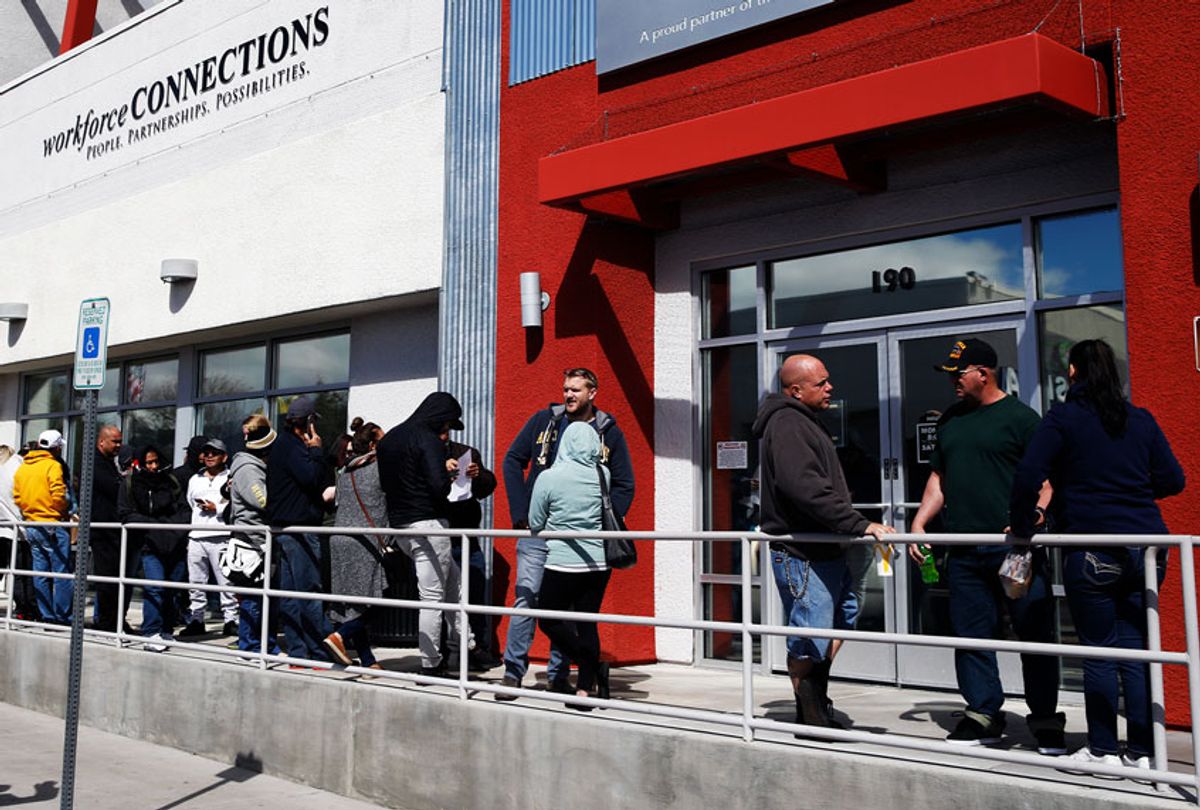The Internal Revenue Service (IRS) has released new projections with some very bad economic news: Millions of the jobs lost during the pandemic are not likely to come back for years.
By estimating how many W-2 tax forms the IRS anticipates receiving in the future, the IRS estimates that Americans can expect to see roughly 229.4 million jobs in which the workers will be classified as employees in 2021. That will amount to a decline of roughly 38.9 million employee-classified jobs from the economic situation in 2020 prior to the pandemic, as well as 37.2 million fewer than it had predicted last year.
Things aren't even going to be better several years down the road; the IRS still anticipates receiving 15.9 fewer W-2 forms in 2027 when compared with prior estimates.
To be clear, W-2 forms are in imprecise way of measuring employment. They only count workers who are officially classified as employees and do not account individuals who fill out multiple W-2 forms because they have more than one job.
This news hits at roughly the same time as Americans learned that the number of initial weekly jobless claims filed had once again exceeded 1 million. As the Bureau of Labor Statistics reported on Thursday, the advance figure for seasonally adjusted claims in the week ending on August 15 was 1,106,000, which constituted an increase of 135,000 from the previous week. Without being seasonally adjusted, 891,510 people filed first-time unemployment benefit claims last week, which when combined with the 542,797 people who filed claims for Pandemic Unemployment Assistance means that overall there were 1.4 million unadjusted first time claims last week.
Speaking to Salon last month, American University macroeconomist Dr. Gabriel Mathy anticipated that long-term unemployment would be a problem as a result of the recession.
"For those that have permanently lost their jobs, if the recession drags on then they face the prospect of long-term unemployment, which will make it harder for these workers to find work again with a large hole in their CVs," Mathy told Salon by email. After noting that the economy seemed to be rebounding in July, he added that "there is the prospect for a recurrence of a new downturn ('double-dip recession') and then unemployment could rise again and job openings would dry up, and those permanent job losses could drag on."
The American economy has suffered much more than the economies of other countries during the pandemic. There is widespread agreement among public health experts that the federal government's inability to control the spread of the virus has let the pandemic drag on and infect millions more needlessly.
"I think the basic principle is the same," Dr. Georges Benjamin, executive director of the American Public Health Association (APHA) and former secretary of health in Maryland, told Salon by email earlier this month. "We don't get back to work until we control the prevalence of community virus [spread]. The fastest way to reduce unemployment is to control the infection; that means controlled, strategic reopenings."



Shares